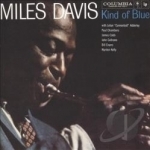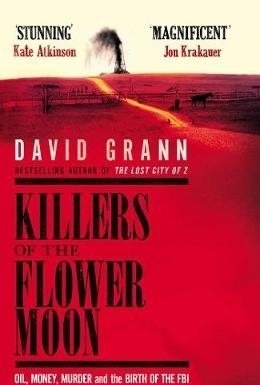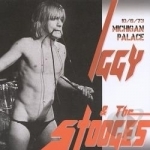Hazel (1853 KP) rated The Music Shop in Books
Dec 7, 2018
From the author of <i>The Unlikely Pilgrimage of Harold Fry </i>comes a unique and beautiful story about music and learning how to listen. <i>The Music Shop</i> by Rachel Joyce takes readers on a journey through the developing music world of the late 1980s when CDs are beginning to wipe out all other means of recording music – a complete disaster for someone like Frank, the owner of the music shop, who only sells vinyl.
The book begins in 1988 in a crumbling down street where shopkeepers are barely making enough money to survive. Frank’s shop is one of the few remaining and, despite everything against him, is determined to keep going. Not only does he sell vinyl records, Frank has an empathetic gift allowing him to sense exactly what a customer needs to listen to, even though they may not realise it themselves. However, one day, Frank’s world is turned upside down by the arrival of a young German woman, Ilse Brauchmann, who faints on his doorstep.
Ilse intrigues all of the shopkeepers on Unity Street, particularly Frank’s teenaged assistant, Kit. Although Frank tries to deny it, Ilse also fascinates him to the point that he is rarely thinking of anything else. But what concerns him most is that he cannot pinpoint what piece of music she ought to listen to. When questioned, Ilse admits she knows nothing about music and begs Frank to give her lessons. These lessons have nothing to do with instruments – Frank is the least qualified to teach such a thing – but about how to listen to music. How to hear the pauses in classical pieces; understand the meaning behind Beethoven’s sonatas; feel the passion behind punk music; learn to love a number of composers for the things many people miss.
The longer Frank spends around Ilse, the more he begins to fall in love. However, love is something Frank denies himself ever since the death of his mother fifteen years previously. Written in italics are flashback chapters explaining how Frank’s love of music came about, his relationship with his mother, and how he ended up as a dead-end vinyl seller. Due to his fear of intimate relationships, Frank keeps pushing Ilse away until, one day, he realises how much he needs her. But, he may have left it too late.
<i>The Music Shop</i> is split into four sections, or sides (a reference to vinyl records). Side A introduces the characters and settings during a wintery January when Frank is beginning to struggle with the competition caused by the recently opened Woolworths on the nearby high street. Sides B and C focus on the development of Frank and Ilse’s friendship, the secrets they hide from each other and the foreboding sense of disaster hanging over the one-of-a-kind music shop.
As Frank begins to realise how much Ilse means to him, the sudden appearance of side D will break readers’ hearts. Whilst sides A, B and C take place in 1988, side D jumps forward 21 years to 2009. It appears Frank and Ilse never got the relationship they deserved. Two unhappy decades have been and gone, demolishing any resemblance of the way life used to be. However, because there is a side D, readers can only hope it will result in a happy ending.
<i>The Music Shop</i> is a love story between two quiet, modest characters whose past and present circumstances get in the way of a peaceful future. However, it is not only a piece of romantic fiction. Rachel Joyce writes a message in story format about second chances and being brave. Learning to listen does not only apply to music, it applies to hearing what other people are saying and what they are not; most importantly, the book urges people to listen to themselves.
The research undertaken for this novel is phenomenal. For starters, it is set almost thirty years ago when vinyl was only beginning to go out of fashion. The quality of music and the access people had to it was extremely different to the simplicity of today where it is possible to download everything at the press of a button. The breadth of music genre is as wide as possible. Every type of music is covered from Handel’s <i>Messiah</i> to Aretha Franklin and The Sex Pistols. To be able to discuss such a range without falling into stereotypes is a feat worthy of congratulating.
<i>The Music Shop</i> far surpasses anything Rachel Joyce has written so far. The story is fragile in a beautiful way, its delicacy causing the reader to treat it with care, rather than rush through it like some mundane piece of fiction. It will interest a whole host of readers: male and female, music lovers and those with a preference for silence. Whoever you are, be prepared to take something away from this distinctive, outstanding novel.

MotoGP Racing - Championship Quest
Games and Sports
App
MotoGP 2017 Season Edition. Finally a motorcycle racing game that keeps you on the track and focused...
Mick Hucknall recommended Kind of Blue by Miles Davis in Music (curated)

Song Sleuth: Auto Bird Song ID
Reference and Education
App
Song Sleuth turns your iPhone or iPad into an automatic bird song identifier covering the 200 most...

Thirty Year Itch by The Wildhearts
Album
'Ginger gave me two instructions: 'Loud guitars and loud crowd' .I didn't have a choice in either as...
Suswatibasu (1703 KP) rated Killers of the Flower Moon: The Osage Murder and the Birth of the FBI in Books
Nov 24, 2017 (Updated Nov 24, 2017)
This fantastic book relates to a story covered in blood, racism and greed. Oil, black gold, made the Plains Osage tribe incredibly wealthy. By the 1890's, the remnants of this great people were in the scrub lands of Northern Oklahoma.
Their life was continually harsh, the soil poor. In the late 1890's, by chance, oil was struck in Osage County, flowing in abundance and in great demand. From 1918 to 1928, $202 million was paid to the tribe which by then numbered around 3000, transforming their lives. 680 barrels were obtained in a day in 1920 from a strike at Burbank, angering the whites and thus began the "Reign of Terror" in which hundreds of the Osage tribe members were subsequently killed in the most horrendous display of corruption.
The book itself begins in 1921 with an Osage woman who had a share of the mineral riches to be found under the Osage land. Mollie like others was subject to a law that treated her tribe as juveniles whose estates had to be administered by white guardians, that is local lawyers and businessmen, appointed by local courts.
Guardianship was unpoliced and few records were kept. Fraud was therefore prevalent and many of the local white community participated in corruption - murder was widespread as a result. Mollie's sister, Anna, was the first noticeable murder in which she was shot and killed, launching a major probe into similar killings in the area. Many other murders were committed over the following years, with poisoning as the most common method of killing. Essentially it was a covert form of genocide.
The locals refused to act, partly due to fear or involvement in this heinous plot, so J. Edgar Hoover, who was the first president of the FBI, became involved in the investigation. He sent a tall Texas Ranger called Tom White to scrutinise an epic series of murders in which even investigators were targets.
What follows is not only history but a riveting detective story and the book demonstrates yet again the enormous cost of American nationhood. It provides some fascinating insight into the early workings of the FBI (not least Hoover's nascent megalomania) for whom this was a celebrated case and a valuable reminder for folk who thought the persecution of American Indians ended in the late 19th century. Author and journalist David Grann does a superb job in collating all of the information with dozens of pages solely highlighting attributions and references - it is thorough and well-researched. Therefore it is hardly surprising that Hollywood has snapped up this book to turn it into a major motion picture - let's hope they don't whitewash history once again.

U LIVE - video chat for adult
Social Networking and Entertainment
App
Are you ready to chat live with beautiful girls all over the world? Then U LIVE is exactly what...
Johnny Marr recommended track Gimme Danger by Iggy And The Stooges in Michigan Palace, 10/6/73 by Iggy And The Stooges in Music (curated)

GoodScanner - PDF Scanner with OCR, Signature
Productivity and Business
App
GoodScanner is a Pocket scanner can quickly scan documents anywhere, anytime. you can scan list,...

CamCam - Selfie Camera, Face Filters, Photo Editor
Photo & Video and Entertainment
App
With CamCam, you can discover a totally different side of yourself through various cute, funny and...



